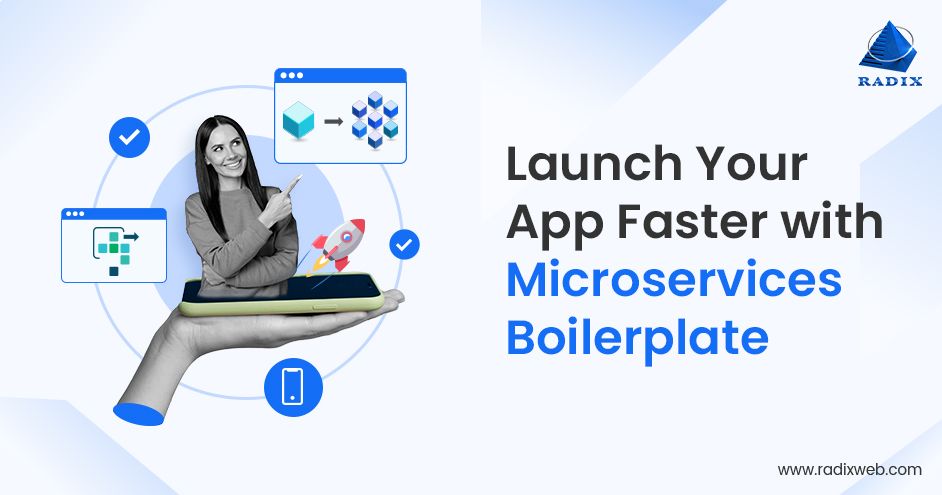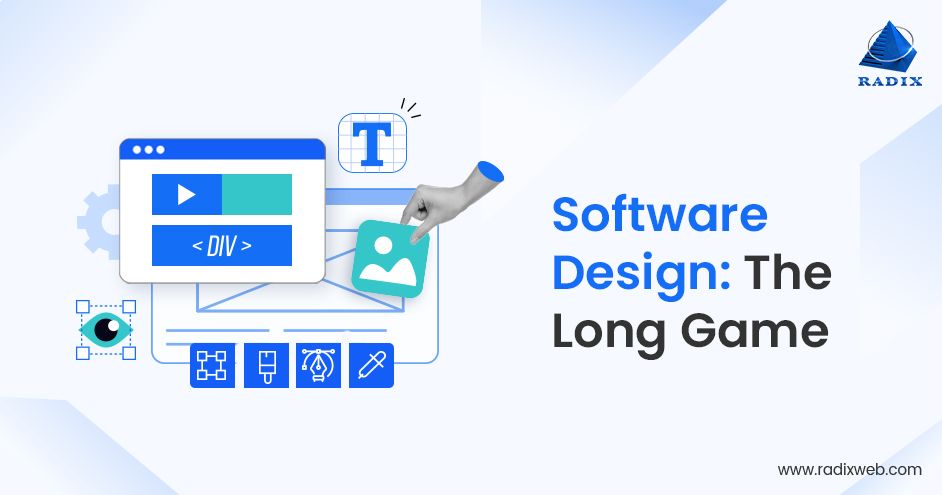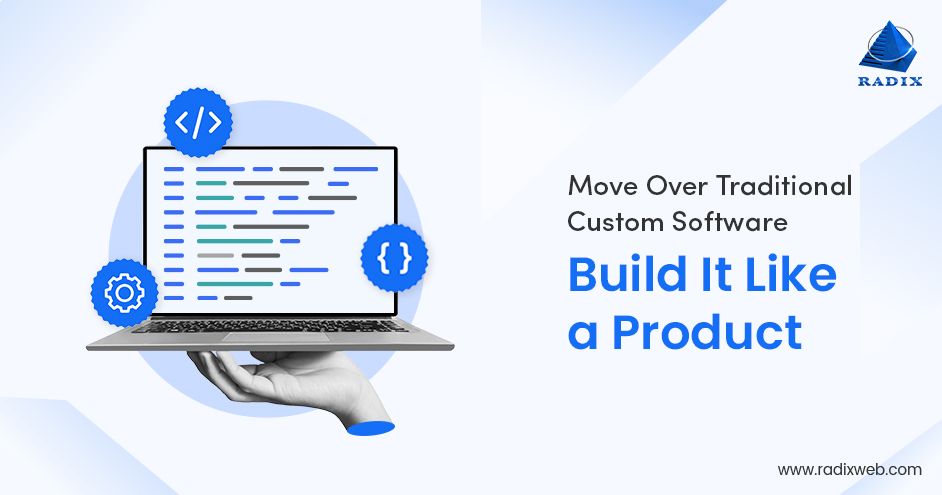
Discover what’s next for AI in healthcare in 2026 - Get Access to the Full Report
How HRMS Software Will Define Remote Working in 2026


Quick Summary: While remote work has become the new norm, it comes with specific challenges for employers and employees. Organizations today prefer leveraging custom HRMS to ensure that employees can function effectively and efficiently from their homes. In this blog, you’ll explore the fundamental aspects of the human resource management system and its significance in the current era.
Remote working is the new normal. With up to 67% of companies permitting options to work from home due to the ongoing coronavirus pandemic, this work mode is here to stay. Some HR experts predict that work-from-home would be more common even post-coronavirus. Thus, if you want to build a robust remote workforce, buckle up.
Even if you already have remote working teams, there is a lot to do to keep your employees connected and engaged. Connection is critical and challenging with remote employees. It is natural to feel lost and left out. However, keeping everyone in sync is the role of human resource management software (HRMS). Remote employee management is the key to ensure it is a win-win situation for both parties involved.
Save your precious time by automating monotonous HR processes by building an efficient HRMS solution
Let’s Schedule Call
On This Page
What is Human Resource Management Software?
Human Resource Management System covers a series of related disciplines because software developers have created verticals or individual solutions. It is a software tool that works as the HR management system for organizations, handling multiple HR functions using IT.
Organizations seek custom HRMS software to integrate, manage, and automate several routine processes involved in HR. It performs various functions, such as organizing and managing employees' and businesses' organizational information and data. It is also easily accessible.
In today's pandemic-stricken world, remote employee management is a necessity. These remote teams tools allow users to manage their employee records from their desktop application, browser, or smartphone app. Others offer the ability to tie into the applicant tracking system, offers administrative benefits, and adequate performance management tools to ensure you follow the complete journey of employees, from recruitment to their retirement.
Progressive SaaS (Software-as-a-Service) HR management system comes with capabilities for companies of different sizes. These offerings are not just cheaper than the previous on-premise solutions, but they are equally intuitive and well-designed platforms that integrate easily with back-office tools like ERP (enterprise resource planning) and accounting.
When choosing human resource management software, you want to deliberate on the critical elements like an intuitive user interface (UI) for a seamless experience, link to the legacy applications and software solutions, scalability, customer support, etc.
Why Is HR Management System So Important?
One of the primary reasons is that custom HRMS software includes data analytics and automation. With AI being the keyword, everything depends on correct information and timing. However, this is not only limited to bigger organizations, but startups, as well as growing organizations, are also facing challenges. Only a proper HR management system can streamline this.
HRMS is vital because it helps with:
- Data Management : HR data can be an organization's most sensitive information. Previously, the approach was to store and manage data on paper, which called for investment in time, space, and money. Then came spreadsheets, which was an erroneous and time-consuming method. HRMS is the only solution that is paperless, thus eliminating the risk of being incomplete or misplaced, among various others. Custom HRMS software also allows real-time data tracking across different HR functions like payroll, attendance, and leave. This is invaluable as employees are also viewed as prospective customers, and at a time, employee engagement plays a key role in an organization.
- Employee Self Service : It is an information suite available to all employees on a central hub. Advanced HRMS has a self-service portal for employees that gives them access to their data. Such a detailed view of crucial data engenders trust and proves to be beneficial. Employees can view and download their details, including payslips, leave records, attendance, and tax liability data, in real-time.
- Ease of Reporting : Custom HRMS software allows MIS report generation immediately without any setup. It also generates predefined statutory reports like CLRA, Shops and Establishment Act, etc., in specific formats, effortlessly. Moreover, by using powerful filters, one can create reports based on various demand parameters. The HR dashboard gives users a glance at critical information on one screen.

- Efficient & Cost-Effective : Cloud-based HRMS is a highly cost-effective investment. Its benefits outweigh the organization's paltry investment in procuring. For example, the cost of payroll management comes down considerably once compliance is done correctly, and the risk of penalties and fines drops significantly. Moreover, duplicate information is unlikely, thereby saving time and improving departmental efficiency. Most importantly, instead of just including the HR, it streamlines leave management and makes it user-friendly for employees and respective reporting managers,
- Better Employee Engagement : This survey revealed that only 12% of employees feel that their company does a good onboarding job. And employee engagement is crucial to boost productivity. Bearing this in mind, one can analyze how features like self-service, accurate and timely onboarding process, payroll management, attendance management, improved leave management, etc., feed into the organization's goals by keeping its employees engaged. Long-drawn and chaotic HR functions can be streamlined, thus leading to higher engagement and satisfaction amongst employees.
- Adopt Industry Best Processes : Industry best practices ensure that you are equipped with the tools to reach the top of your game. Considering that there are many limitations to the functions, adopting best practices is necessary to improve efficiency, reduce error risks, boost productivity, and much more. Human Resource Management Software is well researched and created to easily incorporate within the space of the industry's best practices. Some common examples include predefined formats used for requests and appointment letters, checklists, and so on.
Read More : Opt the Best Approach for Your HRMS – Off-the-Shelf or Bespoke Software
How HRMS Benefits Remote Employee Management?
The HRMS model can quickly help manage remote work in the following ways:
- Automated HR Process : Typical HR processes like onboarding, payroll management, recruitment, and performance management, are highly resource-intensive and time-consuming. Automating these processes with HRMS reduces time, effort, and human intervention. It also allows the HR personnel to investigate other key functions.
- Remote Access to Employee Self Service : Employee service is one of the major tasks for the HR department. The HR team is responsible for supporting employees with process clarification, certificates, documents, etc. This could be highly time-consuming and cumbersome, resulting in an inefficient workload for HR executives. HRMS enables remote access for employee self-service. As a result, employees can generate their documents remotely by logging into their system using their credentials. This makes remote employee management easier for the HR department.
- Regulation Management : Most organizations operate within complicated legal environments, which compels them to follow regulations like taxation. HRMS allows organizations to complete compliance checks and schedule alerts to ensure the company follows regulatory requirements to avoid penalties.

- Eliminates Human Errors : HRMS automates the process to reduce human errors. A tactfully researched and well-implemented HRMS helps automate tasks like filing and payroll management. As a result, it saves time and eliminates common errors like double credit, incorrect salary amount, missed deductions, miscalculations, etc.
- Protects Against Fraud : According to research, organizations can lose as much as 5% of their annual revenue to fraudulent operations. However, when an HRMS is implemented, it saves the revenue and the time taken to process such claims. Since it is an integrated solution, it leaves no loopholes to manipulate this system. Each process is marked, formats are correctly defined, and integrated into existing finance, ERP, and accounting module to make claims seamless.
Digitize Your HR Operations with Efficient, High-Impact HR Software Development Services
Let Experts Help
Conclusion
HR operations can play a crucial role in the efficiency and productivity enhancement of an organization. By using Custom HR management software, one can benefit from cost-effectiveness and time-saving. It also streamlines major HR tasks, which were otherwise done manually, allowing HR professionals and managers to take superior decisions. Overall, HRMS is an innovative automation paradigm in organizations in these difficult times, especially in managing the remote workforce..
Ready to brush up on something new? We've got more to read right this way.





